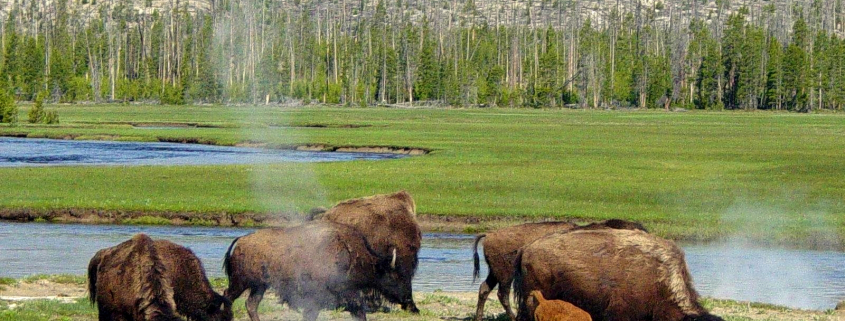Where to Get Away with Murder
“I never killed anyone who didn’t need killing.” — Porter Rockwell, 1869
Assuming you’ve channeled your inner Porter Rockwell and stumbled across someone who needs killing, it might be time to head over to REI, load up on camping supplies, and invite that killing-needing SOB to Yellowstone.
Your probably worthless legal defense begins its story in pre-1548 England. Back then, jurors could only consider facts that occurred in their own county. So, if you stabbed someone in one county, but they died in the next county over, you could literally get away with murder because no one jury could recognize all the facts required to return a conviction–jurors in the first county could consider the stabbing, but not the death and jurors in the second county could recognize the death, but not the stabbing. No one had to throw tea in a harbor to draw the Crown’s attention to this problem, and the English government closed this loophole in the mid-16th century.
Surely, our forefathers here in America would never allow such a thing to happen here. OR WOULD THEY? (Spoiler alert: they would.)
The root of the problem can be found in Sixth Amendment’s “vicinage clause.” According to that, an accused is entitled to a jury “of the State and [federal] district wherein the crime shall have been committed.” If you kill someone pretty much anywhere in the county, a court will have no problem finding jurors who live in both your state and federal districts to fill out a jury.
But things get weird in Yellowstone. The park is mostly in Wyoming, but it does cross the border into Montana and Idaho, so to keep things clean, the three states agreed that the entire park would be governed by federal law. And for purposes of prosecutions, the federal government decided to put the entire park in the District of Wyoming and created a fateful loophole.
For crimes committed in those little pieces of the park that are in Montana and Idaho, the vicinage clause requires jurors from those states, but the District of Wyoming. In other words, the jurors must live in those pieces of the park. The Montana part has a few dozen people living in it, so you might be able to scrape up a jury there, but the Idaho part usually has less than ten residents–too few for a jury. And without a jury, how’s a prosecutor going to get a conviction?
Fortunately, the courts have not confronted this case–yet–but when they do, expect to see some judicial gymnastics to get around this problem.


Leave a Reply
Want to join the discussion?Feel free to contribute!